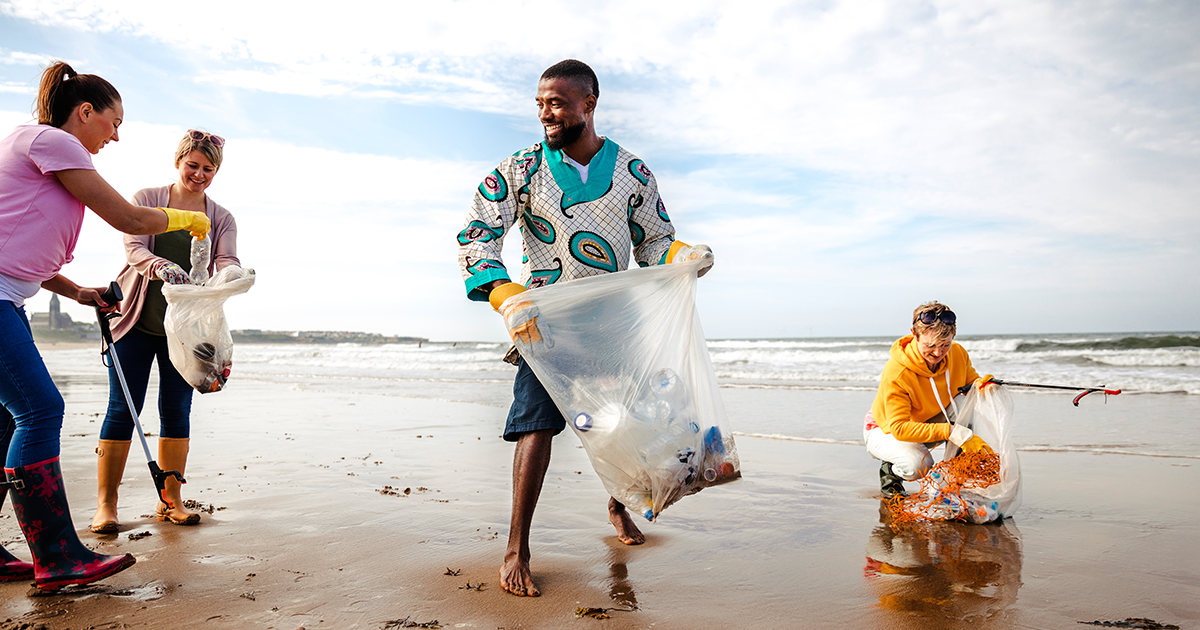Plastic
pollution is one of the greatest threats to ocean health worldwide. With
skyrocketing plastic production, low levels of recycling and poor waste
management, between 4 and 12 million metric tons of plastic enter the ocean
each year. It is enough to cover every foot of coastline on the planet! And
that amount is expected to more than double in the next 10 years. Let that sink
in for a moment.
In the ocean, plastic pollution impacts sea turtles, whales,
seabirds, fish, coral reefs and countless other marine species and habitats. In
fact, scientists estimate that more than half of the world’s sea turtles and
nearly every seabird on Earth have eaten plastic in their lifetimes. Plastic
pollution also mars otherwise beautiful beaches, coastlines, and snorkel and
dive sites worldwide, even in remote areas such as Midway Atoll.
What Can We Do About Ocean
Plastic Pollution?
1. Recycle Properly

This should go without
saying, but when you use single-use and other plastics that can be recycled,
always be sure to recycle them. At present, just 9% of plastic is recycled
worldwide. Recycling helps keep plastics out of the ocean and reduces the
amount of “new” plastic in circulation.
2. Participate In (or Organize) a Beach or River Clean up

Help remove plastics
from the ocean and prevent them from getting there in the first place by
participating in, or organizing a clean up of your local beach or
waterway. This is one of the most direct and rewarding ways to fight ocean
plastic pollution. You can simply go to the beach or waterway and collect
plastic waste on your own or with friends or family, or you can join a local
organization’s clean up or an international event.
3. Support Bans

Many municipalities
around the world have enacted bans on single use plastic bags, takeout
containers and bottles. You can support the adoption of such policies in your
community.
4. Avoid Products Containing Microbeads

Tiny plastic particles,
called "microbeads" have become a growing source of ocean plastic pollution in
recent years. Microbeads are found in some face scrubs, toothpastes and
body washes. They readily enter our oceans and waterways through our sewer
systems and affect hundreds of marine species. Avoid products containing
plastic microbeads by looking for “polythelene” and “polypropylene” on the
ingredient labels of your cosmetic products.
5. Spread the Word
Stay informed on issues related to plastic pollution and help make
others aware of the problem. Tell your friends and family about how they can be
part of the solution or host a viewing party for one of the many plastic
pollution that focused on documentaries.
6. Support Organizations Addressing Plastic Pollution

There are many non-profit organizations working to reduce and eliminate ocean plastic pollution in a variety of different ways. These organizations rely on donations from people like you to continue their important work. Even small donations can make a big difference!
~~~~~~~~~~~~~~~~~~~~~~~~~~~~~~~~~~~~~~~~~~~~~~~~~~~~~~~~~~~~~~~~~~~~
These 6 ideas only
scratch the surface for ways you can help address the growing problem of plastic
pollution in the oceans. The important thing is that we all do something, no
matter how small it is. For more ideas and resources, sign up to join community
of people worldwide committed to joyful daily actions that improve ocean health.
#Be a part of the global
movement to improve ocean health#
No comments:
Post a Comment